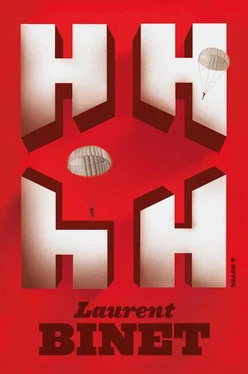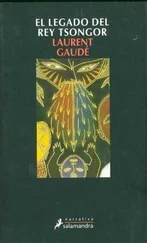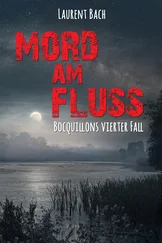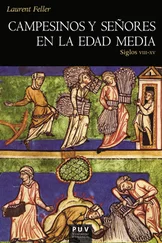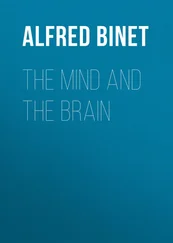Laurent Binet - HHhH
Здесь есть возможность читать онлайн «Laurent Binet - HHhH» весь текст электронной книги совершенно бесплатно (целиком полную версию без сокращений). В некоторых случаях можно слушать аудио, скачать через торрент в формате fb2 и присутствует краткое содержание. Город: New York, Год выпуска: 2012, ISBN: 2012, Издательство: Farrar, Straus and Giroux, Жанр: Историческая проза, на английском языке. Описание произведения, (предисловие) а так же отзывы посетителей доступны на портале библиотеки ЛибКат.
- Название:HHhH
- Автор:
- Издательство:Farrar, Straus and Giroux
- Жанр:
- Год:2012
- Город:New York
- ISBN:978-0-374-16991-6
- Рейтинг книги:3 / 5. Голосов: 1
-
Избранное:Добавить в избранное
- Отзывы:
-
Ваша оценка:
- 60
- 1
- 2
- 3
- 4
- 5
HHhH: краткое содержание, описание и аннотация
Предлагаем к чтению аннотацию, описание, краткое содержание или предисловие (зависит от того, что написал сам автор книги «HHhH»). Если вы не нашли необходимую информацию о книге — напишите в комментариях, мы постараемся отыскать её.
HHhH — читать онлайн бесплатно полную книгу (весь текст) целиком
Ниже представлен текст книги, разбитый по страницам. Система сохранения места последней прочитанной страницы, позволяет с удобством читать онлайн бесплатно книгу «HHhH», без необходимости каждый раз заново искать на чём Вы остановились. Поставьте закладку, и сможете в любой момент перейти на страницу, на которой закончили чтение.
Интервал:
Закладка:
245
Karel Čurda stands on the pavement at the top of Bredovska Street—today renamed the Street of Political Prisoners—which comes out at the central train station. On the opposite corner is Peček Palace, a dour and menacing presence in gray stone. This huge pile was built after the First World War by a Czech banker who owned almost all the coal mines in northern Bohemia. Perhaps the anthracite-gray façade was designed as a reminder of the origin of his fortune. But the banker gave up the mines and the palace to the government, prudently deciding to leave the country for England just before the German invasion. Even today Peček Palace is an official building—home of the Ministry of Commerce and Industry. But in 1942 it is the headquarters of the Gestapo for Bohemia and Moravia. Nearly a thousand employees work here at the blackest tasks, in rooms so gloomy it looks like night even in the middle of the day. Located in the heart of the capital and equipped with the latest technology—a printing works, a laboratory, a pneumatic postal service, and a telephone exchange—the building is, from a functional point of view, absolutely perfect for the Nazi police. Its many underground chambers and cellars have been cleverly converted for the Gestapo’s particular needs. The head of the police here is a young Standartenführer called Dr. Geschke. I’ve seen only one photo of this man, but—with his scar, his womanly skin, his mad eyes and cruel lips, his side-parted hair and half-shaved skull—it was enough to freeze my blood. Anyway, Peček Palace is the very incarnation of the Nazi terror in Prague, and you need a certain courage just to stand in front of it. Karel Čurda does not lack courage, but he is motivated by the thought of twenty million crowns. Though, to be honest, it does take courage to denounce your comrades. You have to weigh up the pros and the cons, and there is no guarantee that the Nazis will keep their word. Čurda is playing double or quits with his own life: either wealth or death awaits him. But he’s an adventurer. That’s why he joined the Free Czechoslovak army; that’s why he volunteered for special missions in the Protectorate: because he has a taste for adventure. He hasn’t enjoyed this return to his homeland because, ultimately, the clandestine lifestyle isn’t very appealing. Since the assassination he’s been living in the provinces with his mother, in the little town of Kolín, forty miles east of Prague. Before this, though, he did have time to meet many people involved in the Resistance, among them Kubiš and Valčík—they worked together in the Škoda operation at Pilsen—and also Gabčík and Opalka, whose paths he crossed several times when they were switching hideouts in Prague. He knows the apartment of the Svatoš family, who supplied a bicycle and a briefcase for the assassination. And above all he knows where the Moravec family lives. I don’t know why he went there three days earlier. Was he already thinking of betraying them? Or was he attempting to get back in contact with the network because he’d had no news of them recently? But why come back to Prague, if not for the reward? Wasn’t he safer with his mother in picturesque little Kolín? Actually, he probably wasn’t: in 1942, Kolín is a German administrative center, where the Jews of central Bohemia are rounded up, and its train station is a rail junction for deportations to Terezín. So it’s possible that Čurda no longer wished to endanger his family—he had a sister in Kolín as well as his mother—and that he came back to Prague to seek support and refuge with his comrades. How important, then, was the closed door he found when he went to call on the Moravecs? And yet, Aunt Moravec was expecting him, because when the concierge told her about the mysterious visitor, she asked if he had come from Kolín. But she’d gone out… We can never know why things turn out the way they do—malicious and mischievous fate, or the powerful forces of some higher will. Still, by Tuesday, June 16, 1942, Karel Čurda has made his decision. He doesn’t know where his comrades are hiding. But he knows enough.
Karel Čurda crosses the road, presents himself to the guard standing in front of the heavy wooden gate, and tells him that he has important information to provide. Then he climbs the wide steps covered in red carpet that lead up to the vast entrance hall, and he is swallowed by the stone belly of the black palace.
246
I don’t know when or why the father and son of the Moravec family returned to Prague. I guess they went away for just a few days. Perhaps it was the son’s impatience to help the parachutists that brought them back, or his unwillingness to leave his mother in Prague alone. Or perhaps it was the father’s work. It’s said that the father knew nothing of what was going on, but I can’t believe that. When he saw the men his wife welcomed into their house, he knew perfectly well they weren’t Boy Scouts. And besides, he asked his friends on several occasions for clothes or a bicycle or a doctor or a new hiding place. So the whole family took part in the struggle—including the eldest son, who lived in England and was an RAF pilot. He will die when his fighter plane crashes on June 7, 1944, the day after D-day. Nearly two years from now, in other words. In times like these, that’s an eternity away.
247
Čurda has crossed the Rubicon, but he is not exactly being welcomed like a conquering hero. After being interrogated all night long—the Gestapo give him a good beating in recognition of the importance of his testimony—Čurda now waits quietly on a wooden bench in one of those dark corridors while they decide his fate. Left alone with him briefly, the requisitioned interpreter asks him a question:
“Why have you done this?”
“I couldn’t bear any more innocent people being murdered.”
And also for twenty million crowns. Which he will get.
248
The Moravec family have lived in fear of one thing throughout these years of iron and horror, and this morning it finally comes to pass. The bell rings, and it’s the Gestapo at the door. The Germans stick them up against the wall—mother, father, and son—then frantically ransack the apartment. “Where are the parachutists?” barks the German commissioner, and the translator translates. The father replies quietly that he doesn’t know any. The commissioner goes off to inspect the other rooms. Mrs. Moravec asks if she can go to the toilet. One of the Gestapo agents slaps her face. But then he is called away by his boss and she asks the translator, who agrees. Mrs. Moravec knows she has only a few seconds. So she locks herself quickly in the bathroom, takes out her cyanide pill, pops it in her mouth, and—without hesitating—bites down on it. She dies instantly.
Coming back to the living room, the commissioner asks where the woman is. The translator explains. The German understands immediately. Enraged, he rushes to the bathroom and breaks down the door with his shoulder. Mrs. Moravec is still standing, a smile upon her face. Then she sinks to the ground. “Wasser!” yells the commissioner. His men bring water and try hopelessly to revive her, but she’s dead.
But her husband is still alive, and so is her son. Ata watches the Gestapo guards carry off his mother’s body. The commissioner approaches, smiling. Ata and his father are arrested and taken away in their pajamas.
249
It goes without saying that he was tortured horribly. Apparently, they showed him his mother’s head floating in a jar. “You see this box, Ata…” He must have remembered Valčík’s words. But a box has no mother.
250
And now I am Gabčík. What do they say? I am inhabiting my character. I see myself arm in arm with Libena, walking through liberated Prague, people laughing and speaking Czech and offering me cigarettes. We are married now, she’s expecting a baby. I’ve been promoted to captain. President Beneš is leading a reunified Czechoslovakia. Jan comes to see us with Anna, behind the wheel of the latest-model Škoda. He wears his cap backwards. We go to drink a beer in a kaviaren by the riverside. Smoking English cigarettes, we laugh as we think back to the time of the struggle. Remember the crypt? God, it was cold! It’s a Sunday. The river flows by. I hug my wife. Josef comes to join us, and Opalka with his Moravian fiancée—the one he used to talk about all the time. The Moravecs are there, too, and the colonel, who offers me a cigar. Beneš brings us sausages, and flowers for the girls. He wants to make a speech in our honor. Jan and I plead with him: no, no, not another speech! Libena laughs and teases me gently. She calls me her hero. Beneš begins his speech in the church at Vyšehrad—it’s cool in there, and I’m dressed in my wedding suit. I hear people come into the church behind me. I hear Nezval recite a poem. It’s a Jewish story, of the Golem, of Faust on Charles Square, with golden keys and the shop signs in Nerudova Street, and numbers on a wall that form my date of birth until the wind scatters them…
Читать дальшеИнтервал:
Закладка:
Похожие книги на «HHhH»
Представляем Вашему вниманию похожие книги на «HHhH» списком для выбора. Мы отобрали схожую по названию и смыслу литературу в надежде предоставить читателям больше вариантов отыскать новые, интересные, ещё непрочитанные произведения.
Обсуждение, отзывы о книге «HHhH» и просто собственные мнения читателей. Оставьте ваши комментарии, напишите, что Вы думаете о произведении, его смысле или главных героях. Укажите что конкретно понравилось, а что нет, и почему Вы так считаете.
